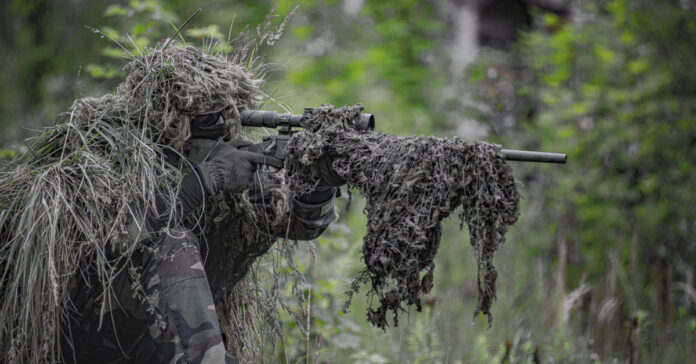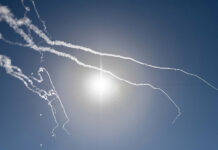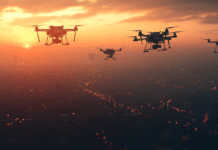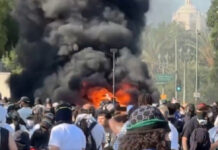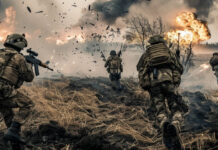While the right to self-defense is in the news because of the Kyle Rittenhouse trial, I thought I would address self-defense from a prepping standpoint.
Let me add that I am not an attorney and this is not legal advice. What follows is my opinion about how firearms fit into a self-defense scenario after a SHTF situation. I encourage you to think about it, do some research, make some plans, and form your own opinions. It’s great to have guns as part of your preparedness supplies, but if you haven’t considered under what circumstances you would use them, then I respectfully suggest you don’t put it off much longer. You should give some thought to what your rules of engagement would be in a few different scenarios and how you would arm your team. The best time to make a plan is before you need the plan.
The Right to Self Defense
I believe that we have a God-given right to self-defense. If someone or some group is attacking you, then you may defend yourself by whatever means possible. The law recognizes this and calls it justifiable homicide. As you can see below, justifiable homicide is when an individual shoots and/or kills someone to:
- Prevent a murder or grave bodily injury on any person (and note that rape is considered grave bodily injury)
- Defend a family member or other person for whom they are responsible form the same
- Defend their home, property or self from someone who intends to enter the property “for the purpose of offering violence to any person therein”
- Lawfully apprehend a felon, suppressing a riot, or lawfully keeping and preserving the peace (this one usually applies to law enforcement officials)
Be warned: just because a legal dictionary lists a defense doesn’t mean it will hold up in court. There are all kinds of qualifications and limits, and these vary by jurisdiction. There may be states in which you can shoot a burglar breaking into your house and others where you have to wait until he is inside, but if he turns his back and runs off, you can’t shoot.
My personal feeling is that while there may come a time when you have to kill someone to protect yourself or your loved ones, you should do nothing to hasten that time. I also believe one should look to avoid trouble rather than seek it out. But should trouble seek you out, then you must be prepared to meet it.
Self Defense Post-TEOTWAWKI
Today, if someone breaks into your house in the middle of the night and you shoot them, whether they charge you with a crime will depend on where you live and the prosecuting attorney. In a post-TEOTWAWKI scenario, there may be no prosecuting attorney. There may be no law enforcement. Depending on how bad things get, you may be on your own. In this case, the rules for self-defense loosen, in part because there will be nothing to hold back violent offenders and your response will have to escalate to meet their actions.
For example, in a survival situation, I would feel protecting my stores and my livestock is self-defense because I might die without them. I might not be able to justify shooting someone for stealing a chicken today, but if the eggs that chicken lays are one of our primary food sources because there are no stores open for the foreseeable future, justifying killing to protect a chicken just became much easier. Also, letting a thief live is a sign of weakness the thief or others might try to exploit. If you don’t shoot at him, the thief might be back, and one stolen chicken could turn into more.
I would also consider trespassing on my land to be far more serious than it is today, in part because trespassers could spy on us, looking for weaknesses and patterns they could exploit to attack us. We have a great deal of vacant land around us. If the worst comes to pass, I aim to join with neighbors to patrol much of it, expanding our boundaries to give us a large buffer zone if people approach.
Thoughts on Warning Shots
Today, no expert recommends warning shots. The reasoning goes like this: if the situation is dangerous enough to justify using a lethal weapon, you should use it to stop the attacking party. If the situation is not dangerous enough to justify lethal force, then by firing a warning shot you have escalated the situation and could be guilty of a number of crimes, like reckless endangerment.
I can see how a warning shot may be useful after the SHTF. Let’s say you and seven other families live on a private road. At the bottom of the road where it joins the state route or highway, you build a roadblock and put up a piece of plywood painted to say: “Keep out! Trespassers will be shot.” For added effect, you add a skull and crossbones and shoot a couple bullet hole in the sign. Station one or two people with rifles in a position to watch the roadblock with rotating shifts.
Over time, car and trucks drive up, look at the sign, and leave. One day, a car pulls up to the road and the driver rolls down the window and looks at the sign. A minute later, two guys hop out of the car, walk up to the roadblock, and start to lift the heavy logs, disassembling it.
The guys on watch now have two options: shoot the guys who have ignored the sign, or fire a warning shot. What do you choose?
Warning Shot Positives and Negatives
Here’s the up side of a warning shot: If the guys down below are smart, they will throw up their hands, back up, get in the car, and drive off. Crisis avoided, at least for now. Of course, they could come back an hour later with six cars and 20 guys; that’s one downside.
Another downside is that you have lost the element of surprise should you need to shoot them. If they duck down behind the roadblock and start shooting back from cover, you have a worse situation on your hands. Not only could the guys on watch get shot, but you will need to use more of your limited ammunition than if you had ambushed them.
A plus of shooting them is that you may kill all three of them with only a few shots fired. If they are scouts, they cannot report back to their main party if they are dead. However, if they were from a similar outpost half a mile down the road and wanted to talk to you about a mutual defense pack or to start up trade, then you have just lost an opportunity and made a new enemy. The last thing you want to do is start a war with other locals.
Another downside is that you have to live with the idea that you killed a few people who may have meant you no harm. Granted, in a world that has fallen apart and has no rule of law, you may have to adjust your morals and protect you and yours at any costs. After all, the signed was pretty clear. If they didn’t believe the sign, that’s on them.
The Benefit of the Doubt
In the above scenario, I think the warning shot gives the three guys in the car the benefit of the doubt. You have warned them with a sign, and you have bounced a round of the road two feet from them. What happens next is on them. The warning shot should also call in reinforcements from the families living up the road and allow them to man other shooting positions should the three guys in the car make a bad decision.
In the end, whether you choose to make warning shots may come down to how things have been going. If there are lots of families passing down the road begging for handouts, a warning shot is probably going to send them on their way. If you’ve heard of a party of raiders that is taking down houses one at a time, then aimed fire may be more justified.
Warning Signs
I like the idea of a warning sign. Make your sign blunt and somewhat scary. Imagine you have bugged out of a city and headed into rural America looking to set up a tent and “live of the land.” You come across a road that looks deserted. You turn down it hoping to find a place to squat, and you see a big sign that says, “Keep Out, We are Armed, Hungry and Angry.” After some debate, you drive past the sign. Before long, you come to a tree cut down across the road and a sign that says, “If you Cross this Line we will Shoot You and Eat You.” I’m betting you back up and turn around pretty fast.
Now imagine you are on a raid with a group of 10 other guys to pillage a neighborhood. How many of the guys are going to want to keep going after seeing that? I bet a few have second thoughts and suggest picking another neighborhood. And the ones that go forward? Well, they’ve been warned, and they have removed any doubt about their intentions. Imagine that the raid leader rallies his troops and leads the men forward and is the first to get shot. Now how many are going to turn tail and run versus fight? The sign sets the tone, the first shot drives it home.
Prepare for the Worst
Maybe you’ve never carried a gun. Perhaps you can’t imagine that you would ever have to kill someone. I bet that changes if the trucks stop rolling, the riots and looting spread, and the golden horde heads your way, looking to rob, rape, and kill anyone standing between them and their next meal. More than eight million people bought guns for the first time last year, many because of the riots. If you didn’t, then you are behind the eight ball. You need to prepare to defend yourself as much as you need to prepare for an economic collapse or a sudden power outage.
Discard your normalcy bias and change your thinking. Train to shoot an aggressor until drawing, finding the front sight, and pressing the trigger becomes muscle memory. Learn how to live with a loaded weapon so you can walk, sit down, and use the bathroom without endangering yourself and those around you. Practice reloading until you can do it without looking at the gun. Practice clearing jams until “tap-rack-bang” becomes ingrained. Train until you can hit targets at a variety of ranges from multiple shooting positions, because bad guys rarely attack at known distances, and there are no shooting mats in the field. Finally, practice working with others so you know how to patrol, how to execute an ambush, how to respond to incoming fire, how to retreat or advance under fire, and how to avoid shooting your buddy in the back.
The gun that sits in the safe won’t protect you. You are the weapon, and you are most effective when trained and armed.

